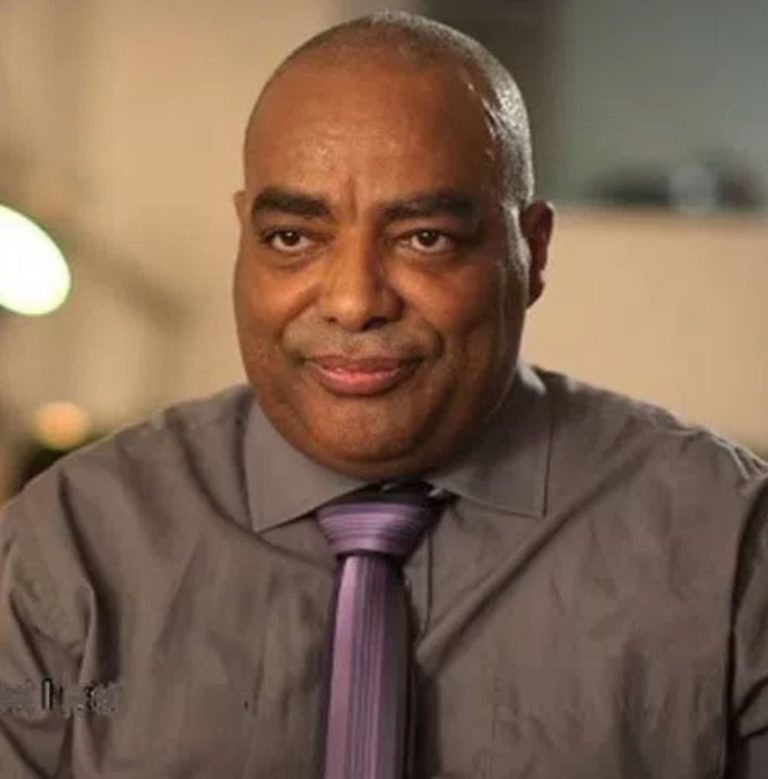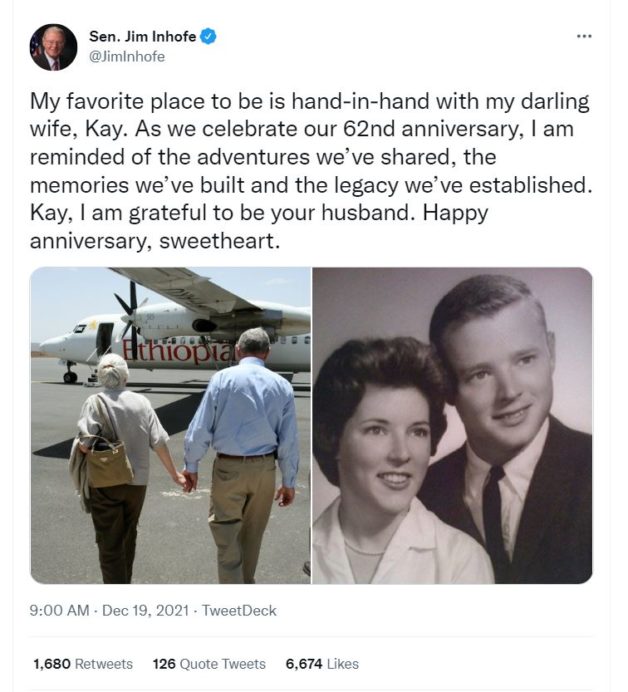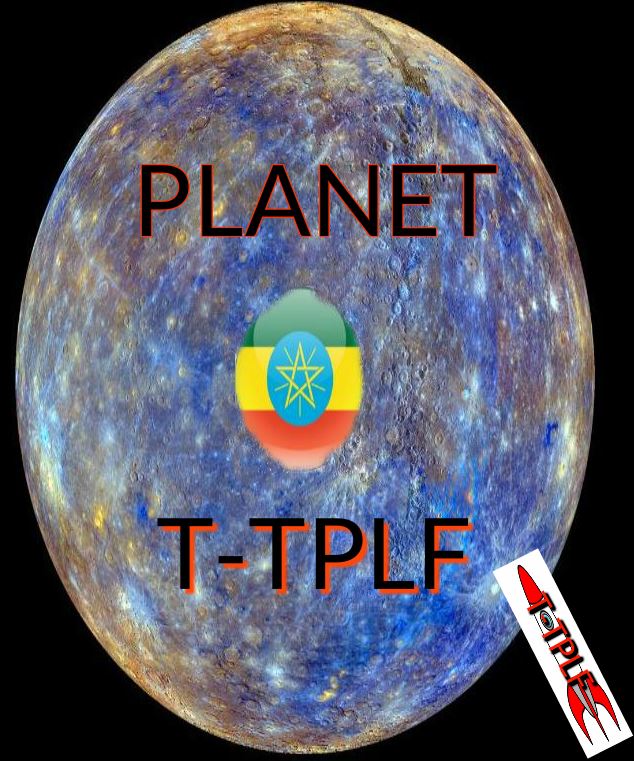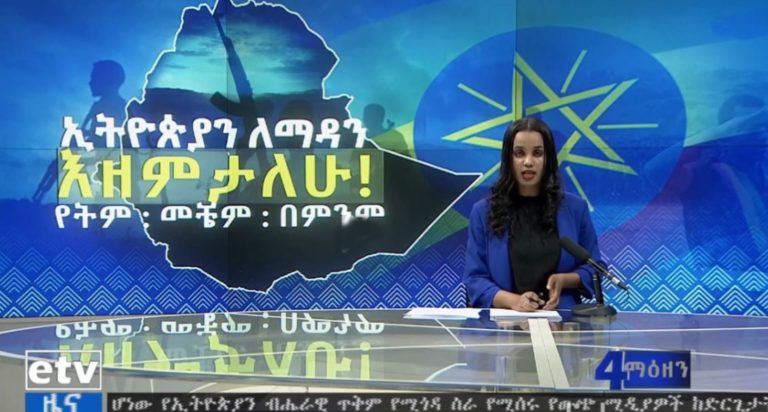What Do WE Want and Do Now (that Fortress T-TPLF is Under a State of Emergency?) (Part IV)
Author’s Note: This is the fourth installment in a series I have called “What Do WE Want and Do NOW?”. The serialized commentaries have three aims: 1) take stock of the impact of the recent uprisings in Ethiopia against the backdrop of the extreme repression (“state of emergency”) unleashed by the Thugtatorship of the Tigrean People’s Liberation Front (T-TPLF); 2) challenge Ethiopians, particularly Ethiopian intellectuals, to think outside the box, indeed with no box at all, about going forward, and 3) propose some ideas that maybe useful in charting a future course of action given current circumstances.

[Continues from Part 3 available HERE; Part 2, available HERE; Part 1 available HERE.]
IX. “WE” must avoid wishful thinking.
One of the amusing things I observed after the October 2016 T-TPLF Irrecha Massacres and also after the demise of Meles Zenawi was the sudden and frantic hustle and bustle among certain groups and individuals in the Diaspora to take the reins of power from the T-TPLF. There were those scurrying about to form a “transitional government”. Others were talking about speedily setting up a “government-in-exile”. Still, others were having convocations to stake out negotiating positions for a post-T-TPLF government. I have personally received invitations to join such efforts.
With all due respect to all, I must confess that I have found the whole effort as wishful thinking detached from reality. I cannot imagine how any reasonable person could seriously entertain the possibility that the T-TPLF, after living high on the hog for a quarter of a century, would simply ride out of power into the sunset of oblivion. But that seemed to be precisely what some in the Diaspora actually expected and believed the T-TPLF would do.
I might offend some when I say that there are many in the Diaspora opposition who are prisoners of their own wishful thinking. I am amused listening to speeches and reading statements and declarations about replacing the T-TPLF. There is a lot of wishful thinking expressed about the one-legged and wobbling T-TPLF on the verge of collapse at any moment. I have even heard “reports” that T-TPLF leaders have shipped out their wives, girlfriends and children to America and Europe in anticipation of their imminent implosion.
All of this impresses me as delusional political posturing and showmanship at best and a foolhardy misunderstanding and underestimation of the “enemy”. My point is not that assertions about T-TPLF decay and likely collapse on its current trajectory are untrue. Evidence abounds that the T-TPLF is in late-stage regime decay with endemic and structural corruption, crony capitalism and are clueless about what to do about the widespread popular resistance to their ethnic hegemonic rule. The T-TPLF declared a “state of emergency” for itself as the very last act of self-preservation and to stave off total collapse.
My point is that the T-TPLF will do everything in its power to cling to power even when it is on life support in its end stage. They will not walk away from power; and if push comes to shove, they will not fight to the last man to stay in power. But their current political survival strategy is based on the old maxim of living one day at a time. They will do everything just to stay in power one more day, and one more day after that. They know the end is near for them and that the “end will come like a thief in the night.”
The inexorable decay and withering away of the T-TPLF regime should not be interpreted as a sign of its imminent collapse or as an invitation to cakewalk to power. Neither wishful thinking nor “last minute heroes” (ye dil atbya arbegnoch) could hasten the end of the T-TPLF. Those who believe they can drop on the scene out of the blue during crises points and take charge of whatever movement or momentum is building on the ground while laying low when the going is tough will only face disappointment and frustration in the end.
If one must engage in wishful thinking, I say dream to build the New Ethiopia and not daydream about the end of the T-TPLF to take advantage of any power vacuum. To build the New Ethiopia, it is necessary to build an inclusive mass movement of ordinary Ethiopians of good will who are committed to putting their noses to the grindstone in defiant resistance to the T-TPLF, and their shoulders to the wheel of the struggle and keep plugging on every day rain or shine. “WE” should replace wishful thinking about a collapsing T-TPLF with a u(E)topian dream of building New Ethiopian nation, a new nation where citizens will not be judged by the color of their skin, their ethnicity, their religion, their language or gender “but by the content of their character”.
“WE” should understand that wishful thinking does not bring a tyrannical regime down nor help build a new nation. There are no shortcuts to building a new nation. There are no templates and no formulas for it. There are no rewards and commendations for those striving to build a new nation. There is only blood, sweat and tears awaiting those who want to build the New Ethiopia. Those who do not accept this reality are living in La La Nation.
Frederick Douglass wisely instructed, “Those who profess to favor freedom and yet depreciate agitation, are people who want crops without ploughing the ground; they want rain without thunder and lightning; they want the ocean without the roar of its many waters. The struggle may be a moral one, or it may be a physical one, or it may be both. But it must be a struggle. Power concedes nothing without a demand. It never did and it never will.”
There must be struggle – large and small– against the T-TPLF every day!
X. “WE” must not be emotional; “WE” must be cerebral.
After over a decade of involvement in the Ethiopian human rights struggle, one of the things I have found perplexing has been the extreme emotionality to political and social crises. Just to be clear, there is nothing wrong in expressing passionate outrage over T-TPLF massacres and raging against T-TPLF crimes against humanity. It is proper for people to express their anger and frustrations.
My complaint has to do with the general “emotional culture of griping” where people get themselves worked up into a frenzy about T-TPLF actions or statements. The late thugmaster Meles Zenawi was skilled in stoking emotions in the Diaspora. He would say, “Ethiopia is only 100 years old. Those who claim otherwise are indulging themselves in fairy tales.” He would inflame passions by asserting, “The flag is just a piece of rag.” He would get under people’s skins with intentionally provocative declarations: “These Amhara donkeys need to be taught a lesson. They only become peaceful and religious when a Kalashnikov is pointed at them.” The T-TPLF would demonize Emperor Menelik II to canonize Meles Zenawi.
While such statements are offensive and insulting, they are also calculated psychological operations aimed at dividing the people and destroying the morale of the opposition in general and to vilify certain groups in particular. These efforts are undertaken to distract the people and fog up their thinking so that they are unable to focus on the important political and social issues. Emotional and angry people often lose their capacity to reason well and are more likely to be disengaged just to avoid aggravation.
I argue that “WE” must develop “emotional intelligence” in dealing with the endless ignorant and vulgar provocations of the T-TPLF. I believe it is the duty of opposition leaders, intellectuals and opinion makers to help the general public understand issues from a factual perspective by providing evidence-based analysis and finding creative ways of avoiding emotional responses that lead to inaction and deep resentment. Nelson Mandela’s admonition is worth heeding. “Resentment is like drinking poison and then hoping it will kill your enemies.” “WE” must use our brains, not just our hearts, when dealing with the outrages of the T-TPLF.
XI. To defeat the T-TPLF, “WE” must also play OUR game attrition
What is good for the goose is good for the gander.
A nonviolent struggle for social change is essentially a protracted moral war of attrition.
As I explained my first commentary in the series, the T-TPLF has declared a war of arms and attrition on the Ethiopian people, and particularly the leaderless youth movement driving the nationwide uprising. The T-TPLF believes the fire of defiance and resistance started by Ethiopian youth will flicker and burn out in a short period of time. They are hopeful the so-called state of emergency will fix it all inside of six months.
But the T-TPLF knows better. They know they are in late-stage regime decay. Their “state of emergency” is a last ditch effort to reconsolidate power and go on with business as usual. Over the past year, the T-TPLF has tried shock and awe to destroy the popular uprising and massacred and arrested thousands. The T-TPLF uncharacteristically reported that it had detained 11,607 people, including 347 women. The T-TPLF did not report how many innocent people they have tortured or killed. (Anyone who believes the T-TPLF account of detainees was probably born last night. The actual number of arrests and detainees is likely to be 3-4 times the reported figure.)
The T-TPLF is also prosecuting its war of attrition in addition to its war of arms. They are using a variety of means to wage their war of attrition including a declaration of a state of emergency, cabinet shuffling, campaigns of disinformation and propaganda, setting up bogus national dialogue forums, trotting out opposition leaders with dubious pasts to create the impression of reaching out to the opposition and declarations aimed at creating the impression of imminent democratic transition and a variety of other empty gestures of reform.
The fact of the matter is that the T-TPLF will not give away a milligram of power to anyone under any and all circumstances.
The peoples’ war of attrition requires nothing more than an irrevocable personal resolution and commitment not to cooperate with the T-TPLF, its laws and institutions, and a determination not to support in any way the economic empire built by the T-TPLF and its cronies. In this regard, much can be learned from Gandhi’s Non-Cooperation Movement.
Following the Jallianwala Bagh massacre (Amritsar massacre) in 1919, in which British troops fired into a crowd of nonviolent Indian protesters killing nearly a thousand and wounding many more (Remember the Irreecha Massacres!), Gandhi launched his first large-scale popular non-cooperation campaign to remove the British from Indian soil. Indians boycotted British goods, services and businesses, and refused to attend colonial government educational institutions. Indian leaders and officials resigned their titles and positions. Eventually, Indians refused to pay taxes to the colonial government. Within a short time, the Non-Cooperation Movement transformed the Indian anti-colonial struggle into a mass-based nationalist movement creating for the first time a united Indian front against British colonialism.
It appears there is a growing silent boycott campaign of T-TPLF institutions and businesses. It is said that there is widespread silent boycott of businesses and services of T-TPLF supporters and cronies in Ethiopia. Even T-TPLF parvenus have cut back on conspicuous consumption and laying low and out of sight during the “state of emergency”. It is said that a silent boycott campaign against T-TPLF airlines has resulted in significant reductions in passenger bookings and traffic. A passenger ticket from Washington, D.C. to Addis Ababa could be snagged for less than $500, cheaper than a ticket from Los Angeles to Washington, D.C.
The economic consequences of the T-TPLF “state of emergency” declaration have had far-reaching effects. According to the African Travel and Tourism Association, “The state of emergency and FCO travel advisory have taken a heavy toll on bookings for the next six months.” According to press reports, “Ethiopia’s attraction as a favorite new destination for foreign investors is fast dissipating as businesses owned by Nigerian billionaire Aliko Dangote and Dutch fruit processors come under attack in growing political unrest.” In April 2016, the International Monetary Fund projected Ethiopia’s growth “to decline substantially to 4.5 percent”. The foreign exchange shortage in the country is said to be “so critical that opening a Letter of Credit (LC) takes as long as one year or even more” without any guarantee of fund availability.
The T-TPLF will no doubt lose the peoples’ war of attrition. The T-TPLF is now using its guns, tanks and planes to cling to power, but it can never defeat a people united against its tyrannical rule in a moral war of attrition. Strength comes from indomitable will, not guns. In the end, what matters is not the size of the dog (or how many guns one has) but the size of the fight in the dog (the steely determination of people without guns to rid themselves of oppression).
XII. If “WE” ask the right questions, “We” will arrive at the right answers.
Albert Einstein once said, “If I had an hour to solve a problem and my life depended on the solution, I would spend the first 55 minutes determining the proper question to ask, for once I know the proper question, I could solve the problem in less than five minutes.”
If “WE” spend more time understanding the many problems facing Ethiopia, “WE” are more likely to find the most effective solutions.
I may offend some people when I say in general that “WE” lack the self-discipline to study and understand complex problems in depth. “WE” are not willing to invest the time nor are “WE” willing to exert the energy required to carefully study issues and problems and propose solutions. I would say most of our “solutions” to the monumental problems facing Ethiopia are answers to ill-conceived, irrelevant and untimely questions. “WE” ask the same questions time and again hoping to get new answers. As Einstein observed, “Insanity: doing the same thing over and over again and expecting different results.” The same can be said of asking the same questions. We must ask questions outside the box; in fact it is necessary to ask questions without any boxes. “WE” need to ask creative and imaginative questions. Einstein said, “Imagination is more important than knowledge. For knowledge is limited to all we now know and understand, while imagination embraces the entire world, and all there ever will be to know and understand.” More poetically, George Bernard Shaw said, “You see things; and you say, ‘Why?’ But I dream things that never were; and I say, ‘Why not?’”
Why must “WE” imprison ourselves with questions of ethnicity? Why can’t “WE” imagine, dream of a u(E)topia where citizens will be judged by the color of their skin, their ethnicity, their religion, their language or gender “but by the content of their character”. Why can’t “WE” ask questions that affirm our common humanity and nationality than reinforce our ethnic identity and enmity? Why can’t “WE” ask questions that promote our unity in our nationality? Why can’t “WE” ask inspiring questions? Why must “WE” remain trapped in a mental process of negativism and defeatism?
XIII. “WE” must not be power-hungry and power-thirsty. “WE” must follow in the footsteps of Mandela.
Some people may be offended when I say “WE” need to be “leadership-hungry” and -thirsty and not power-hungry and -thirsty. No African leader set the standards of leadership better than Nelson Mandela. Upon becoming the first democratically elected president of South Africa, Mandela’s announcement was that he would serve only one term. No African leader has ever made such a statement. In a continent known for power-hungry and -thirsty politicians scheming around the clock to take over power, Mandela’s announcement was earthshaking. Mandela stepped down as he promised and handed over power to the younger generation.
I believe Nelson Mandela cast the die for the type of leadership Ethiopia and all other African countries need today. Mandela’s leadership philosophy was simple: “It is better to lead from behind and to put others in front, especially when you celebrate victory when nice things occur. You take the front line when there is danger. Then people will appreciate your leadership.”
Mandela was a visionary leader with strong principles and values. He envisioned the New South Africa while he languished in prison for 27 years. He had a vision of uniting a deeply divided nation around common interests, goals and values. In his inaugural speech, he made his vision clear: “We understand it still that there is no easy road to freedom…none of us acting alone can achieve success. We must therefore act together as a united people, for national reconciliation, for nation building, for the birth of a new world.”
Mandela had unique leadership skills. He was a strategic thinker and leader who always aimed for inclusion. He invited his former jailer to his presidential inauguration giving a lesson in forgiveness to the world. His personal secretary for over two decades was a white Afrikaner woman who called him “Khulu” (Xhoso word for grandfather). Mandela understood the complex social, political and economic forces in South Africa and devised inclusive strategies to harmonize them generating domestic and international support. His leadership pivoted on the promotion of racial and ethnic harmony, truth and reconciliation, democratic rule tempered by the rule of law and an abiding hope in the future while learning from the mistakes of the past.
Mandela was an outstanding student of history and he did not want to repeat the mistakes of other African countries which gave in to revenge and intolerance permanently damaging their societies and futures. He asked all the right questions. The answers led to the same conclusion: South Africa can survive only as a multi-ethnic and multi-racial society cleansed in a process of truth-finding and reconciliation. He declared in his inaugural speech, “Never, never and never again shall it be that this beautiful land will again experience the oppression of one by another.”
Mandela was able to guide his nation out of a catastrophic race and class war by looking forward (and not backward like many African leaders) and objectively analyzing various scenarios and formulating strategic moves. He understood the task of putting together the broken South Africa in a post–apartheid period would be an enormous task. Mandela understood that he “alone cannot fix it”; he needed everyone to fix the broken South Africa. He challenged both black and white South Africans to join him as members of his construction crew for the New South Africa.
Mandela was a courageous leader. He always strove to do the right thing even if his decision went against public opinion. He proudly supported and wore the shirt of the Springboks rugby team, the very symbol of apartheid and white supremacy, during their world championship match despite fierce ANC opposition and massive total public disapproval. The socialist Mandela once declared that “The nationalization of the mines, banks and monopoly industries is the policy of the ANC, and a change or modification of our views in this regard is inconceivable.” Yet after examining the experience of Zimbabwe, he chose to forgo nationalization and adopt alternative policies that promoted economic and social justice.

In my tribute to Nelson Mandela upon his passing in December 2013, I expressed my feelings which summarize my hopes for the future leadership of Ethiopia:
Nelson Mandela was a bridge builder. He built bridges across racial, ethnic and class divides. Nelson Mandela was a fireman. He saved the South African house by dousing the smoldering embers of racial and ethnic strife with truth and reconciliation. Nelson Mandela was a pathfinder. He built two roads named Goodness and Reconciliation for the long walk to freedom, and walked the talk. Nelson Mandela was an architect. He built a magnificent tower of multiracial democracy on the ashes of apartheid. Nelson Mandela was a magician. He pulled a white and a black dove out of a hat at once and let them fly free. Nelson Mandela was the greatest alchemist who ever lived. He transformed hate into love, fear into courage; doubt into faith; intolerance into compassion; anger into understanding, discord into harmony and shame into dignity.
Nelson Mandela was an imperfect man who was perfect for the most imperfect society in modern history. He tried to achieve a more perfect union for his people perfectly divided by race, ethnicity and class. He rescued white South Africans from the monstrosity of apartheid and the evil of racism that lurked deep in their hearts. He tamed the wrathful beast of revenge roiling in the hearts and souls of black South Africans. In his own heart, he tended to a garden of love, harmony and reconciliation. Nelson Mandela had the perfect message for the most imperfect society: “To make peace with the enemy, one must work with the enemy, and that enemy becomes your partner”. We all believed we had to kill our enemy to make peace!
Ethiopia needs leaders of all types who walk in the footsteps of Nelson Mandela.
To be continued…







